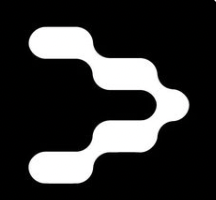From leading innovation to creating software with the potential to shift the world, life in tech can be extremely rewarding. But in an uncharted digital age where screens and virtual calls connect millions of colleagues across the globe, finding your place within the tech world can be challenging. So building your own community has become more important than ever.
For Accenture, community building is in its DNA. A global professional services leader, Accenture delivers digital, cloud and security solutions for clients in more than 120 countries. Bringing together leaders in strategy, industry experts, enterprise function practitioners, business intelligence professionals, cloud migration and management specialists, designers, data scientists, and many other skills, the company’s more than 500,000 people deliver on the promise of technology and human ingenuity every day. They embrace the power of change by creating 360-degree value for their clients, people, shareholders, partners and communities.
“Across the globe, one thing is universally true of the people of Accenture: We care deeply about what we do and the impact we have with our clients and communities. It is personal to all of us,” says Accenture Chief Executive Officer Julie Sweet.
With such a large workforce, finding a sense of community inside the matrix has become a priority for those seeking mentorship or support.
For Latisha M. Roberson, an Accenture HR Executive, more than 15 years of inclusion and diversity experience has made her an expert on the importance of creating communities and innovative talent programs within Fortune 500 companies and nonprofit organizations. With over a decade of success at Accenture — spending the last five years as the North America Inclusion and Diversity Program Manager — Roberson recently became the HR Awards and Rankings Lead for North America.
She credits this journey to the network she’s built along the way. “I joined Accenture in the Government Relations Office; before that I worked in government relations for UNCF (formerly known as the United Negro College Fund). I was also a legislative staffer on Capitol Hill. That’s actually how I came to Accenture to work within the government relations department — through the network I built. Since joining, I’ve been awarded a lot of amazing opportunities, and part of that has been the community and the network that I’ve built here,” Roberson explains.
Speaking with AfroTech, Roberson dives deeper into how to build your own community or space within a company, why it’s important to know the culture and more.
Building to Win: The Importance of Flexing Your Network
Whether in a small or large organization, being able to look outside your individual role can help you when considering other areas or opportunities within the organization. In some ways, it’s still not about what you know — it’s who you know.
“Globally, we have more than a half a million people. It’s a very large organization, so community is key at Accenture. It’s very important to build a community because there’s so many different parts within an organization, and you don’t want to be pigeonholed. Otherwise, you’re going to miss out on not only the people but also the work being done outside of your individual organization. You want to build your network of people that can introduce you to other like-minded individuals who can teach you about certain trends and keep you abreast of new projects,” says Roberson.
“The knowledge of our people and their expertise in various subject matters is what sets us apart. So you have to think of your network in the same way. You have to build a community and be knowledgeable of what’s going on in it. Network building is about people that enhance the overall business. So it’s very important, when you’re building your communities, to think beyond just the people who look like you,” she adds.
Authentic Networking, Even If You Loathe It
While there are some people who can work a room like a pro, for others — including those who battle any level of social or generalized anxiety — networking can feel like a chore. However, it’s a chore with an incredibly high payoff for anyone who invests the time into it. The key is to focus on authentic networking, which shifts the focus to building genuine connections and relationships as you go.
Roberson says even she had to cultivate this skill. “Networking is something that has to be done, which is why I have to plan and be intentional about it. I’ve learned how to be comfortable when connecting and meeting people. It’s not something that comes easy to everybody, but once you figure out some key tools, you’ll be just fine. That includes mastering your elevator pitch, which is being able to say who you are and what you do.”
Being able to concisely articulate who you are and describe your skills is key in building the confidence needed to network and interact with new people. “A lot of times, people are nervous because they feel like ‘Why would someone want to talk to me?’ or ‘I’ve done this before and it hasn’t really gotten anywhere.’ And that’s because you haven’t really said who you are and why they should talk to you. Building that self-confidence is key,” says Roberson. “Another key element is to do your research by knowing who’s going to be in the room and having a plan. This helps you figure out who you need to talk to, which allows you to be intentional about your networking.”
Company Culture and Finding Support or Partnerships
When courting an opportunity, always consider the company culture. It’s not just about finding out whether you’re a good fit for a company; it’s about identifying if they’re a good fit for you as well. For Roberson, company culture is one of the reasons she’s stayed with Accenture for over a decade.
“The culture at Accenture is very dynamic — it’s why I’m still here. When I started almost 12 years ago, I had no idea that I would still be here, but it’s a culture where I feel you can thrive if you’re ready to be challenged. Accenture is full of extremely smart people, but it’s the people that challenge you every day to do better that make the greatest impact. Every day, you’re challenged to think outside the box and be innovative, to make new connections and bring value to the company and to your client. Accenture is a company where the culture is very creative. There’s a community and different opportunities to connect with people, from employee resource groups to even an Accenture Peloton group. There’s something for everyone here.”
Doing your own research is also key, she says. “One of the best indicators of a company’s culture is the people who work there. Understanding why they work there (or who doesn’t work there anymore) can help before you even start at a company.”
—
Whether seeking new opportunities or just trying to expand within your current organization, building a network mixed with like-minded and completely diverse thoughts is a major key to creating an authentic community. When finding your place in any organization, it’s important to be the catalyst you want to see.
“Be the change. We’re always looking for how we can be innovative, challenge thinking and change the environment and culture here at Accenture,” says Roberson. Learn more about the amazing impact you can have by joining the Accenture team here.


